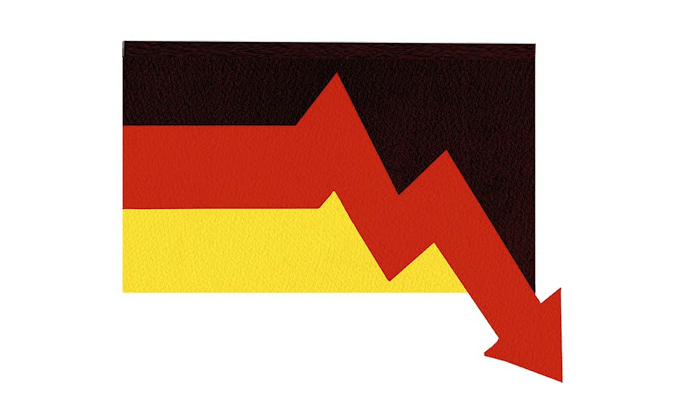There must be a slight flaw in the IMF’s crystal ball, causing the future prospects for the German economy to be refracted onto Britain. Remember a year ago when the IMF confidently predicted that the UK economy would suffer the worst performance of any major industrial nation and contract by 0.6 per cent in 2023, worse even than Russia? The Remain lobby had a field day, presenting it as ‘evidence’ that our departure from the EU had put us in the international slow lane.
It wouldn’t have been such a bad forecast, it turns out, had it been for Germany. The German economy, it has been announced today, shrank by 0.3 per cent last year – worse, it looks like, than any other large country. Industrial production, hit by high energy costs, contracted by 2 per cent, but it wasn’t just that. Household consumption fell by 0.8 per cent and government spending, hit by the end of Covid-related funding, fell back by 1.7 per cent.
There is little room for schadenfreude over this side of the Channel. While Britain has so far avoided recession (which was also predicted by the Bank of England) and last week’s GDP figures showed the economy rising by 0.3 per cent in November, the stagnation of the UK economy is there for all to see. Output in the three months to November, indeed, was minus 2 per cent. But it is painfully clear that whatever is holding back the UK economy is also holding back the eurozone, and Germany in particular. Europe is becoming the global laggard.
Neither do Germany’s prospects look great in the near future. Germany’s greatest problem is what –until now – has been regarded as its greatest strength. Unlike other European countries, it has maintained a very strong industrial sector in recent decades, with manufacturing still making up 26.6 per cent of the German economy, compared with 16.8 per cent in France and 10 per cent in the UK. Indeed, Germany remains a more industrial country than the US, where 18.4 per cent of the economy is manufacturing. The trouble is that the same pressure that helped to shrink manufacturing in other western countries are now coming down to bear on Germany – caused principally by cheaper competition from South Asia.
High energy costs play an important role in this. With Russian gas no longer reaching Germany, the country is caught between cheap energy and its self-inflicted obligation to achieve net zero emissions by 2045, five years ahead of Britain and most western European countries (Angela Merkel’s ban on nuclear energy doesn’t help things there). In a harbinger of what is to come, in 2022 the German industrials giant BASF announced that it was no longer looking to invest in Europe – but would build a new £10 billion plant in China instead. The pride of Germany’s economy, the car industry, is trailing badly in the switch to electric vehicles, the market for which is starting to be dominated by China.
When your economy is so heavily based around large manufacturers, there is far more inertia than there is in a services-based economy. The danger for Germany now is that it undergoes the same sort of deindustrialisation as Britain did in the 1980s, with mass factory closures and a skilled workforce struggling to find alternative employment. The story of Germany’s poor economic performance could have a long way to run yet.







Comments